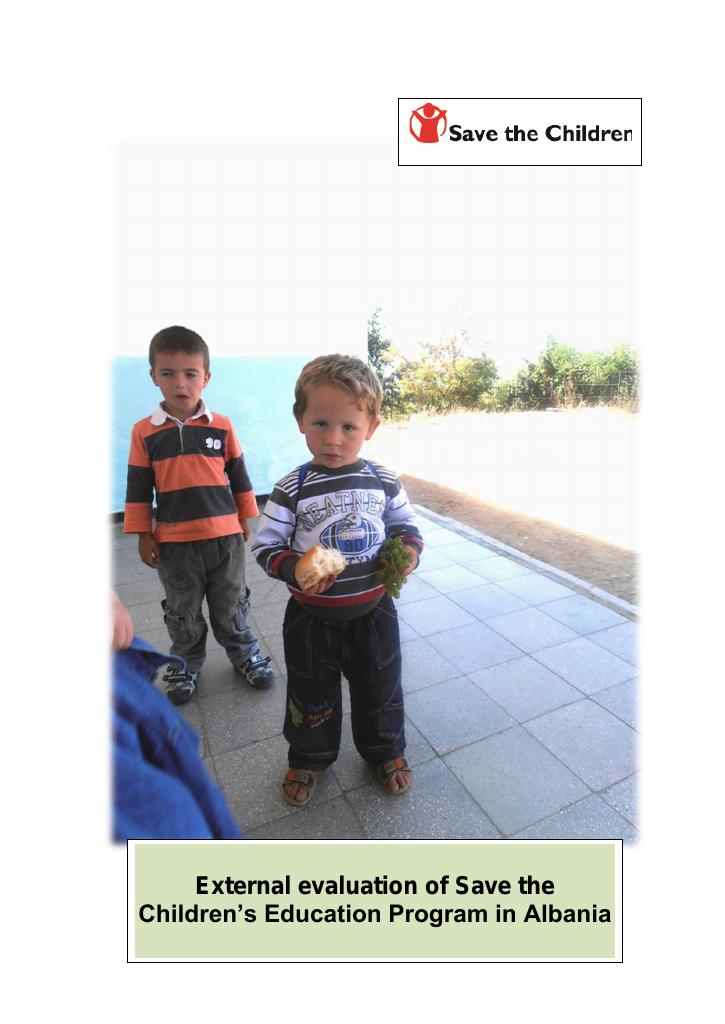Evaluering
External Evaluation of Save the Children’s Education Program in Albania
Albania began the transition period with a population with more years of schooling than that in other developing countries with similar income per capita. However, during the transition period educational levels declined rapidly. Participation/access to pre-university education is low compared to OECD countries. School attendance has been falling, while drop-out rates increase resulting in widespread illiteracy reappearing, especially in poor rural areas. It is likewise a widespread phenomenon for the vulnerable children and particularly Roma children. Measures of learning outcomes in the region show that Albanian students lag behind their peers in both literacy and numeracy. On the OECD PISA Assessment in 2009, Albania scored the second lowest (after Peru) out of the 41 participating countries, with only 9% of its students performing at a level designated as proficient. In math, Albania performed only slightly better, scoring third from last out of the 41 countries. There is no official statistical data on disabled persons in Albania. Some associations have collected data, which estimate that 33 000 children (one of five) suffer a deficiency of which 14 000 from a mental or sensory deficiency. Save the Children envisions an Albania in which all children enjoy their right to access participatory, meaningful, learning opportunities, in order to realise their fullest potential and to enhance social inclusion. SC activities in education have evolved since 2006 to ensure quality education for children by providing access to marginalised groups and ensuring quality education for children in both kindergartens and schools. SC works with other education actors in supporting local communities to advocate their concerns with an informed collective voice for influencing policies. During the current Country Strategy Period (2010-2013) of Save the Children the profile of the education program centres on children’s ability to know their rights, to be active participants in their own learning as well as championing the values of non-discrimination, inclusion and community participation.
